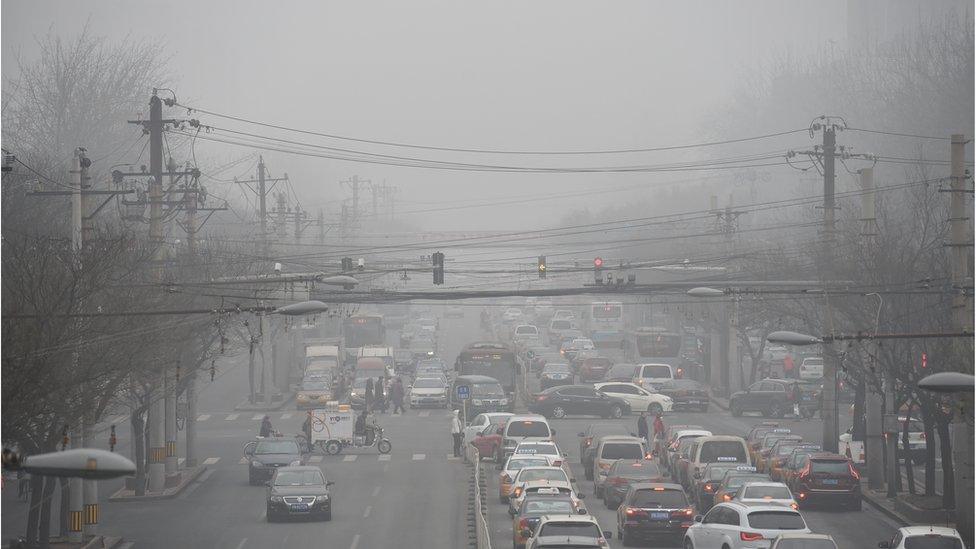Ford eyes deal with Chinese electric carmaker
- Published

China has encouraged electric cars as part of its strategy to fight pollution
Ford has said it is in discussions with a Chinese company to create a new line of electric vehicles for the world's biggest market.
Ford said it was exploring a joint venture with electric car maker Anhui Zotye Automobile Co.
The firm is a major manufacturer of small, zero-emissions electric cars.
The move comes as carmakers in China face new rules designed to boost electric car sales, part of the government's effort to fight pollution.
China already has more electric cars on the road than any other country and Ford said it expects sales of all-electric cars in China to reach four million by 2025.
Officials are also working on new rules that would require 8% of car sales to be electric next year and 12% by 2020.
"Electric vehicles will be a big part of the future in China and Ford wants to lead in delivering great solutions to customers," said Peter Fleet, vice president and president for Ford Asia Pacific.
Can China's electric cars kill off petrol?
Could electric cars reduce China's smog?
A Ford spokesman said the company hoped to reach an agreement with Zotye by the end of the year. The US company said it would share more information about the joint venture and the car as the deal moves forward.
Zotye, based in Huangshan, Anhui province, specialises in small cars and sold more than 16,000 all-electric vehicles up to the end of July this year, up 56% year-on-year, according to Ford.
"This presents us with an exciting opportunity to leverage each other's strengths in achieving a win-win situation for both parties' growth in the fast-evolving Chinese electric vehicle market," said Jin Zheyong, chairman and president of Anhui Zotye.
Ford said in 2015 it planned to invest $4.5bn on electrification efforts, introducing 13 hybrid and electric vehicles by 2020.
The company also said 70% of all Ford vehicles sold in China would have electrified options by 2025.
The firm, which already has two joint ventures in place in China, has sold more than 600,000 vehicles in China in the first seven months of this year, down 7% from the same period in 2016. Ford has attributed the decline in part to changing government incentives.